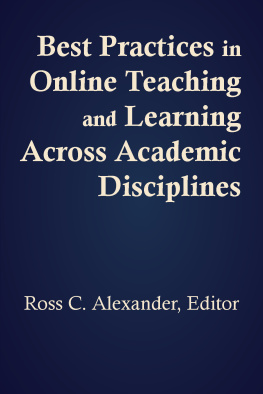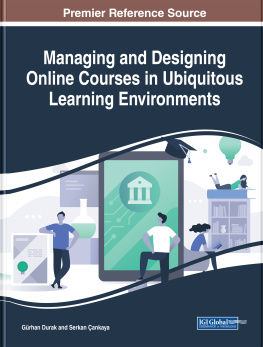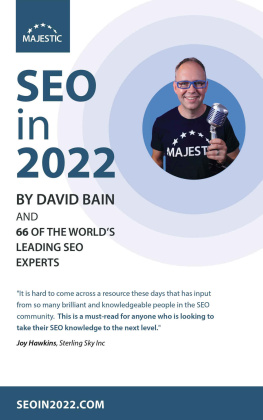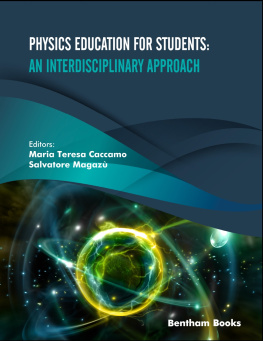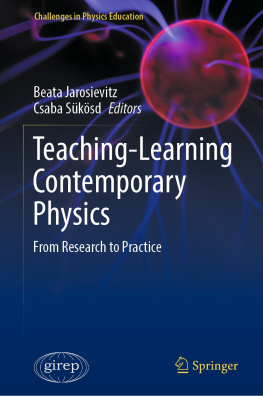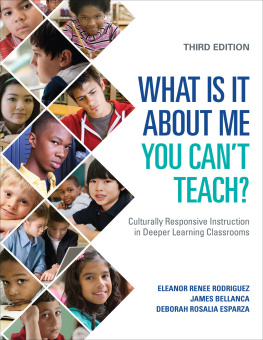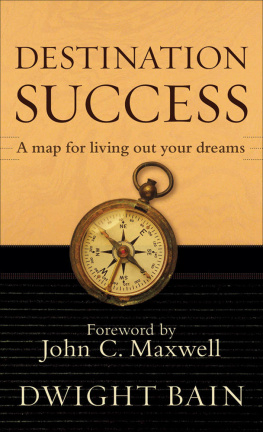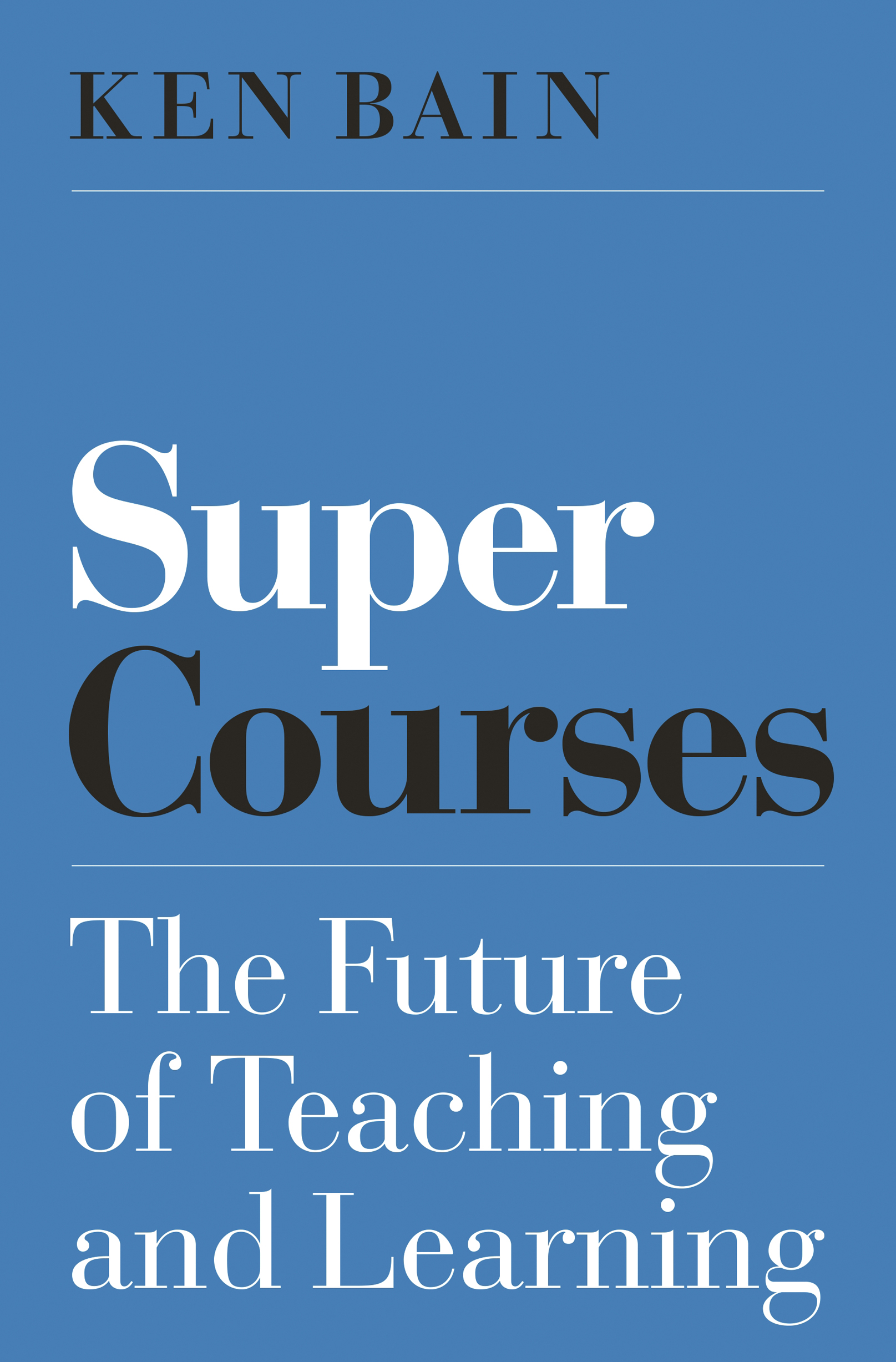SUPER COURSES
SUPER COURSES

The Future of Teaching and Learning
Ken Bain
with Marsha Marshall Bain
PRINCETON UNIVERSITY PRESS
PRINCETON AND OXFORD
Copyright 2021 Ken Bain
Princeton University Press is committed to the protection of copyright and the intellectual property our authors entrust to us. Copyright promotes the progress and integrity of knowledge. Thank you for supporting free speech and the global exchange of ideas by purchasing an authorized edition of this book. If you wish to reproduce or distribute any part of it in any form, please obtain permission.
Requests for permission to reproduce material from this work should be sent to
Published by Princeton University Press
41 William Street, Princeton, New Jersey 08540
6 Oxford Street, Woodstock, Oxfordshire OX20 1TR
press.princeton.edu
All Rights Reserved
Library of Congress Cataloging-in-Publication Data
Names: Bain, Ken, author.
Title: Super courses : the future of teaching and learning / Ken Bain with Marsha Marshall Bain.
Description: Princeton, New Jersey : Princeton University Press, 2021. | Includes bibliographical references and index.
Identifiers: LCCN 2020036521 (print) | LCCN 2020036522 (ebook) | ISBN 9780691185460 (hardcover) | ISBN 9780691216591 (ebook)
Subjects: LCSH: College teaching. | Education, HigherCurricula. | Curriculum change. | Learning, Psychology of.
Classification: LCC LB2331 .B343 2021 (print) | LCC LB2331 (ebook) | DDC 378.1/25dc23
LC record available at https://lccn.loc.gov/2020036521
LC ebook record available at https://lccn.loc.gov/2020036522
Version 1.0
British Library Cataloging-in-Publication Data is available
Editorial: Peter Dougherty, Alena Chekanov
Production Editorial: Terri OPrey
Text Design: Karl Spurzem
Jacket/Cover Design: Matt Avery (Monograph LLC)
Dedicated to Adam, Nathan, and Junhui
ACKNOWLEDGMENTS
This book began with an idea that Marsha had about studying examples of invitational syllabi. We collected some brilliant examples from around the world, and we are grateful to everyone who offered their work. But the original notion morphed into something different, and better, after Peter Dougherty invited us to lunch one day in August 2017. Peter had just retired as director of Princeton University Press, and, as he put it, had taken on a new project: the development of a comprehensive list of books on higher education. He wanted to know if we might have something to contribute.
That fall, we drove to Princeton from our home in South Orange, New Jersey. Over French, European, vegetarian friendly, and gluten free options at Cargot Brasserie, located in the former Dinky train station on the edge of the university campus, we began to explore what we might offer to that project. We mentioned the syllabus book, to which Peter quickly added, Youre looking for Super Courses. It was the first of numerous contributions that the editor made to our endeavor, a title that captured our work brightly and brilliantly and drove our thinking in a whole new direction. We are deeply grateful for all that Peter gave us, gently guiding us toward the book you have in your hands.
Other people also provided rich resources that made the work better. We want to thank all of the great educators along the way who spent valuable time discussing their imaginative pedagogical creations, including all of those whose work doesnt appear here because space limited the possibilities. From those conversations, and from the rich materials educators shared with us, we continued to see a pattern in their work that the natural critical learning environment and Peters delightful title captured well.
Not every provocative course we encountered, however, reflected that Super Course model, but even those that didnt helped us understand the special power and uniqueness of those that did. Furthermore, they helped us see the full scope of the changes that are brewing. We want to thank and applaud everyone who has or will contribute to this revolution, including you.
Special thanks to Sue Triplett for her encouragement; Brena Walker for reading parts of the manuscript and providing technical assistance with language; Tonia Bain, Al Masino, Marshall Bain, and Alice Yuan Bain for their inspiration and encouragement; Adam, Nathan, and Junhui for providing their stories; Anthony Rossi and Christopher Barker, physicians who (along with their staff) shepherded Ken through his battle with cancer in the midst of the work on the book; and all of the wonderful people at Princeton University Press and its affiliates for their myriad contributions. It takes a big community to produce a book like this.
Prologue
We are in the midst of a profound revolution in teaching and learning. This change has come in the form of a new breed of Super Courses that have emerged in the humanities, social and natural sciences, arts, professional fields, and other areas. While these new experiences have appeared in all stages of education, they have made their biggest difference in undergraduate colleges and universities. These dramatic changes have also appeared in high schools and medical institutions.
These new kinds of courses are altering the nature of what students encounter in school. While fostering deeper and more widespread learning, they have redefined what it means to become educated and the conditions most likely to produce that end. When Harvard University Press published our What the Best College Teachers Do in 2004 and What the Best College Students Do in 2012, the nature of this revolution had already become somewhat clear, but it has continued to grow, transforming itself and the landscape around it.
Weve Come a Long Way
For decades, many educators simply focused on finding superior minds and helping them to develop. These teachers assumed that the best way to educate was to give students facts to digest. Yet the innovations of which we speak are now demonstrating that traditional classrooms have too frequently left most students far short of their potential, even those who score the highest marks. Furthermore, our methods of measuring learning have long been inadequate. Its tough to detect and appraise the changes that go on in peoples minds when they learn. Sometimes students have received praise for largely empty accomplishments. Other times some marvelous progress has gone undetected by our antiquated methods of assessment.
In the traditional classroom, instructors might laud the power of comprehension, critical thinking, creativity, and problem solving but often test for memory. Only with improved understanding of evaluation can teachers from grade school to the university focus more clearly on deep learning, adaptive expertise, and the ability to take an idea and realize its implications in a large variety of settings, some far distant from each other (what we sometimes call far transfer). Only then can we appreciate the importance of living at the edge of our own cultural perspectives and constantly exploring the problems we might face in accepting whatever we believe.
New technologies have certainly affected change, but they have not been the driving force that so many observers assume. The strongest influence has come instead from research on human learning. True, we have often pinned our hopes on our machines, and a variety of technologies have made it easier to create transforming learning environments. Yet sophisticated gadgets do not create better schools without advances in how we comprehend and measure learning and motivation. Indeed, the emphasis on technology as a savior of education has led to some false starts and pedagogical dead ends. Even in the spring of 2020, when a pandemic forced thousands of classes to go online, insights into how our minds grow, not computers or the internet, determined success or failure.


